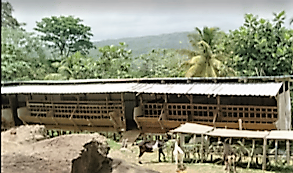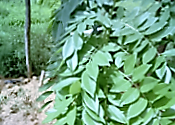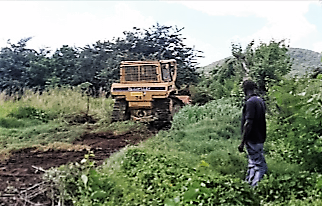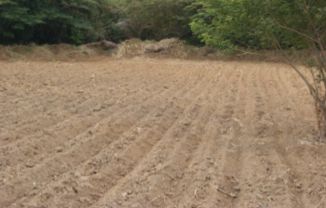
vulnerable to climate change threats

vulnerable to climate change threats
Saint Lucia: In 2015, Small Ruminant production was identified by the Ministry of Agriculture, Food Production, Fisheries, Cooperatives and Rural Development (MAFPFCRD) as a level one priority commodity for development in Saint Lucia on the basis of its potential contribution to sustainable livelihoods and employment, profitability, and contribution to food and nutrition secu-rity. However, traditional small ruminant production systems (as with other agricultural systems) have been challenged with adapting to the effects of climate change.
In addressing the situation, the IICA Delegation in Saint Lucia conducted two activities aimed at building a more climate change resilient small ruminant value chain:
1) Climate-proofing Value Chain Assessment
2) Support to the Saint Lucia Ruminant Cooperative Society Limited (SRCS) in establishing a Forage Bank.

identified for the forage bank
The first activity revealed that the main climate change threats facing the small ruminant value chain were longer drought periods (which affected pasture availability) and increased intensity of tropical storms and hurricanes for which farmers, under traditional systems, had very little adaptive capacity thus leaving their production systems extremely vulnerable.
In consultation with farmers and the execution of a national validation exercise, response measures were identified which focused on building forage banks utilizing local green forage that can be sustainably grown, as well as improving local herds for greater resistance to drought/heat.
The second activity was a direct response to the national consultation and sought to increase availability and use of endogenous forage species with high nutritive value for small ruminants. Suitable forage species were identified with support from Dr. Manuel Sanchez (IICA’s Representative in Guatemala).
The IICA Delegation in Saint Lucia then provided assistance with land-clearing and the purchase of small tools and equipment for propagating forage cuttings and maintenance of the forage bank. The Forage Bank is currently being developed in Beausejour in the south of Saint Lucia.













